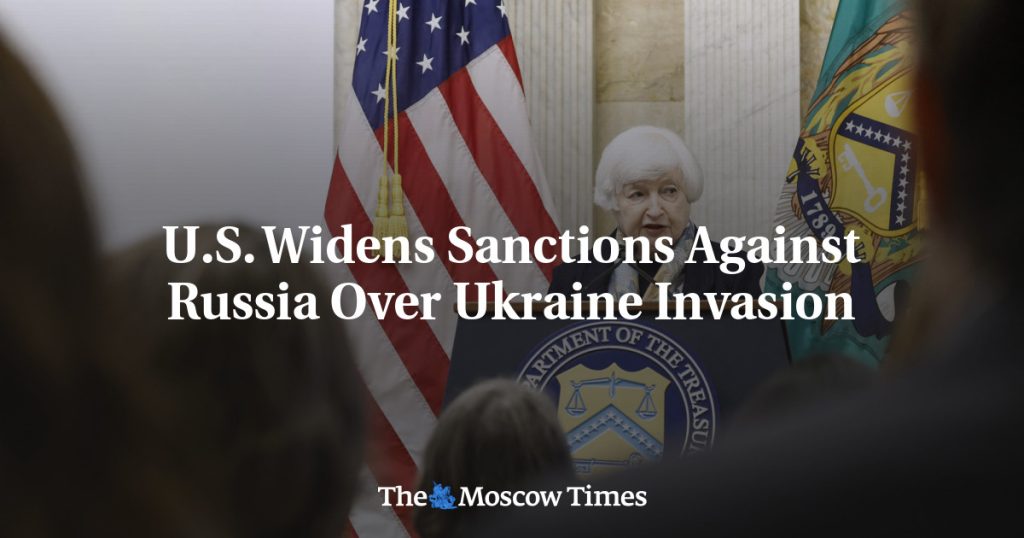The United States announced new sanctions targeted at constraining Moscow’s ability to wage war on Ukraine and increasing pressure on foreign banks still conducting business with Russia. The Treasury Department and State Department imposed sanctions on over 300 targets, including entities in Russia, China, Turkey, and the United Arab Emirates. This move impacts entities such as the Moscow Exchange and LNG projects, making transactions more complicated. Treasury Secretary Janet Yellen stated that the goal is to limit Russia’s access to international materials, equipment, and critical supplies to diminish their ability to benefit from foreign technology and services.
In addition to the new sanctions, the Treasury Department is broadening its definition of Russia’s “military-industrial base,” expanding the reach of secondary sanctions to all Russian individuals and entities affected by U.S. sanctions. This means foreign financial institutions could face sanctions for transactions involving any blocked person or designated Russian banks, increasing the list of exposed targets from over 1,000 to about 4,500. Washington is also restricting the supply of IT services and certain software support to individuals in Russia to further hinder their war efforts.
The latest sanctions also target transnational networks, impacting over 90 people and entities in countries like China, South Africa, Turkey, and the UAE. These foreign networks have been supplying goods and services to Russia, helping them sustain the war and avoid sanctions. Efforts to restrict Russia’s ability to wage war in Ukraine have already had a significant impact, with global exports to Russia decreasing by almost $90 billion and U.S. exports halting for everything except certain medical items. The Treasury’s expanded list of information for five sanctioned Russian financial institutions includes addresses and aliases of their foreign locations, impacting almost $100 million in high-priority items.
The U.S. Treasury’s actions come ahead of the G7 summit in Italy, where leaders are expected to discuss using the profits from the interest on frozen Russian Central Bank assets to aid Ukraine. The White House previously stated that steps to assist Ukraine using frozen Russian assets would be announced during the summit. With the goal of increasing pressure on Russia and cutting off their access to resources that fuel the war in Ukraine, these latest sanctions aim to cripple Moscow’s ability to sustain their military operations in the region. By broadening the scope of sanctions and targeting foreign networks that support Russia, the U.S. is intensifying efforts to isolate Russia from international markets and disrupt their war economy.


